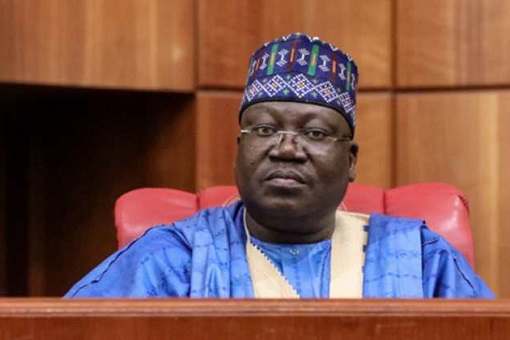Finally, the National Assembly has amended the Electoral Act Amendment Bill for the second time and also agreeing to consensus candidacy, and also setting up fresh conditions for political parties in the nomination of candidates for elections. Dating back, the President had vetoed the bill concerning the restrictions of political parties to direct primary, stating
Finally, the National Assembly has amended the Electoral Act Amendment Bill for the second time and also agreeing to consensus candidacy, and also setting up fresh conditions for political parties in the nomination of candidates for elections.
Dating back, the President had vetoed the bill concerning the restrictions of political parties to direct primary, stating that indirect primary and consensus arrangement should be inclusive. Clause Section 87 of the Electoral Act 2010, which is Clause 84 of the Electoral Act (Amendment) Bill, has been amended by the House and also inserting the indirect primary option. The Senate not only added the indirect primary but also consensus adoption of candidates by a political party.
Amending the bill for the second time the House and the Senate will have to refer the amended version to a conference committee to balance the differences and report back for final passage and transmission to the President for his approval.
The new amended Clause 84 now reads.
“(2) The procedure for the nomination of candidates by political parties for the various elective positions shall be by direct, indirect primaries or consensus.
(3) A political party shall not impose nomination qualification or disqualification criteria, measures, or conditions on any aspirant or candidate for any election in its constitution, guidelines, or rules for nomination of candidates for elections, except as prescribed under sections 65, 66, 106, 107, 131, 137, 177 and 187 of the Constitution of the Federal Republic of Nigeria, 1999 (as amended).
On direct primaries, Clause 84(4) reads, “A political party that adopts the direct primaries procedure shall ensure that all aspirants are given equal opportunity of being voted for by members of the party and shall adopt the procedure outlined below:
(a) In the case of presidential primaries, all registered members of the party shall vote for aspirants of their choice at a designated center at each ward of the Federation.
(b) The procedure in paragraph (a) above of this subsection shall be adopted for direct primaries in respect of gubernatorial, senatorial, federal and state constituencies.
(c) Special conventions or congresses shall be held to ratify the candidate with the highest number of votes at designated centers at the national, state, senatorial, federal and state constituencies, as the case may be.
On indirect primaries, Clause 84(5) reads, “A political party that adopts the system of indirect primaries for the choice of its candidate shall adopt the procedure outlined below:
(a) In the case of nominations to the position of presidential candidate, the political party shall – (i) hold a special presidential convention at a designated center in the Federal Capital Territory or any other place within the Federation that is agreed to by the National Executive Committee of the party where delegates shall vote for aspirants of their choice.
(ii) the aspirant with the highest number of votes cast at the end of voting shall be declared the winner of the presidential primaries of the political party and that aspirant’s name shall be forwarded to the commission as the candidate of the party.
Clause 84 further provides under that, “(7) Where there is only one aspirant or a consensus candidate in a political party for any of the elective positions mentioned in subsection (5)(a), (b), (c) and (d), the party shall convene a special convention or congress at a designated center on a specified date for the confirmation of such aspirant and the name of the aspirant shall be forwarded to the Independent National Electoral Commission as the candidate of the party.
(8) A political party that adopts the system of indirect primaries for the choice of its candidate shall clearly outline in its constitution and rule the procedure for the democratic election of delegates to vote at the convention, congress meeting.”
Aspirants must write to party on withdrawal from race.
“On consensus candidates, Clause 84(9) provides that “(a) A political party that adopts a consensus candidate shall secure the written consent of all cleared aspirants for the position, indicating their voluntary withdrawal from the race and their endorsement of the consensus candidate.
(b) Where a political party is unable to secure the written consent of all cleared aspirants for the purpose of a consensus candidate, it shall revert to the choice of direct or indirect primaries for the nomination of candidates for the aforesaid elective positions.
(c) A special convention or nomination congress shall be held to ratify the choice of consensus candidates at designated centers at the national, state, senatorial, federal and state constituencies, as the case may be.”
Going further the Senate President has warned parties stating that parties that failed or refused to adhere with the provisions on the mode of primaries, would miss out on the opportunity to participate in elections.
According to him, “On the mode of conducting primaries by parties to produce candidates, we have concluded our task on the amendment to the Electoral Act No. 6 2010 Bill.
You will recall that the Senate and the House passed the Electoral Act amendment bill with a slight difference. While the House passed the mode of primaries to be direct and indirect only, the Senate passed the mode of primaries to be direct, indirect and consensus.
What we have done is to give a very clear and sufficient definition to each mode of primaries. The direct primary is well defined on how it will be conducted; ditto the indirect primary. And for the consensus, the two chambers have produced in this bill, a very clear definition of how a consensus candidate would emerge”.
However, it must be noted that the National Assembly and the Senate has done a good job by amending the clauses in the Electoral Act Amendment bill, earlier vetoed by the President last year.
“The National Assembly of the Federal Republic of Nigeria is a bicameral legislature established under section 4 of the Nigerian Constitution. It consists of a Senate with 109 members and a 360-member House of Representatives. The body, modeled after the federal Congress of the United States, is supposed to guarantee equal representation with 3 Senators to each 36 states irrespective of size in the Senate plus 1 senator representing the FCT and single-member district, plurality voting in the House of Representatives.
The National Assembly, like many other organs of the Nigerian federal government, is based in Abuja in the Federal Capital Territory. The Assembly has broad oversight functions and is empowered to establish committees of its members to scrutinize bills and the conduct of government officials.
Since the restoration of democratic rule in 1999, the Assembly has been said to be a “learning process” that has witnessed the election and removal of several Presidents of the Senate, allegations of corruption, slow passage of private member’s bills and the creation of ineffective committees to satisfy numerous interests”. This section is culled from WIKIPEDIA. https://en.wikipedia.org/wiki/National_Assembly_(Nigeria)


















Leave a Comment
Your email address will not be published. Required fields are marked with *